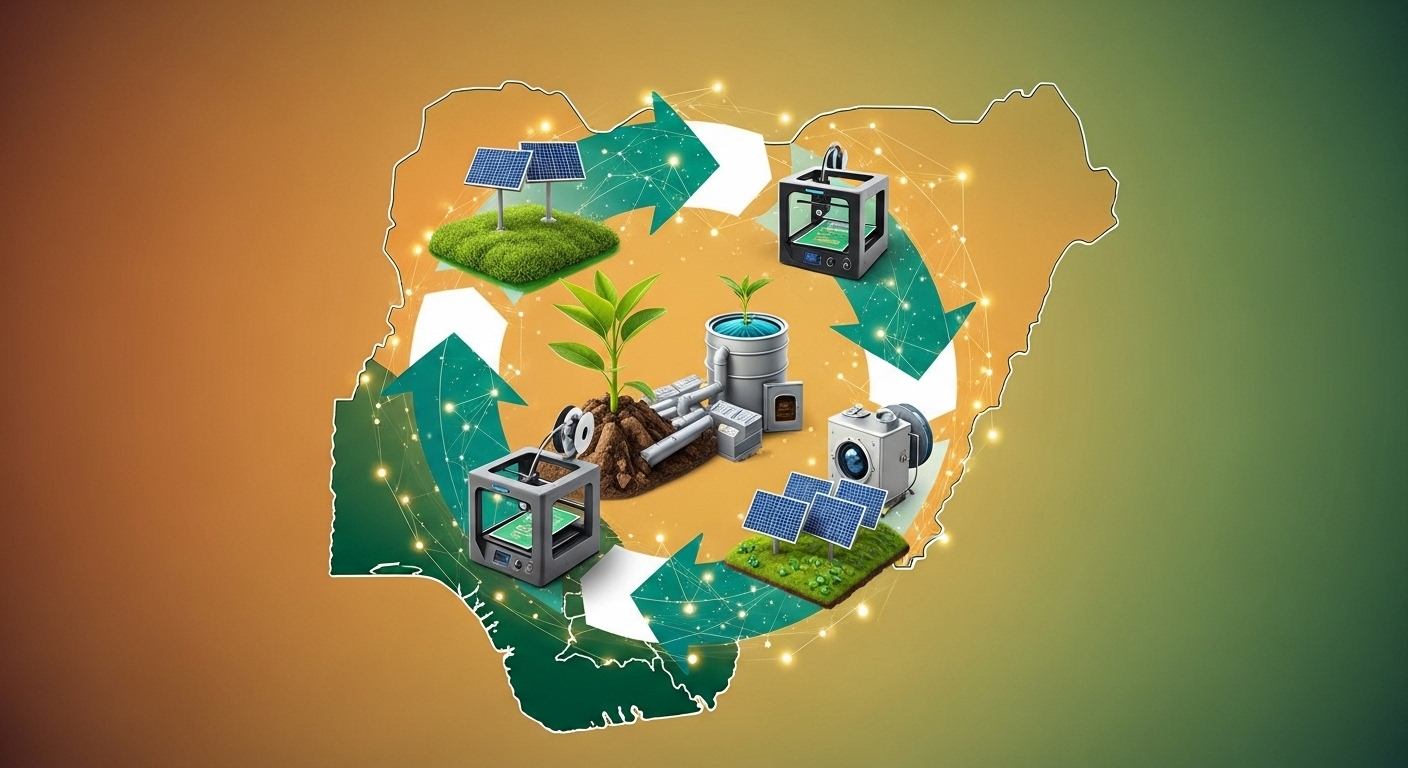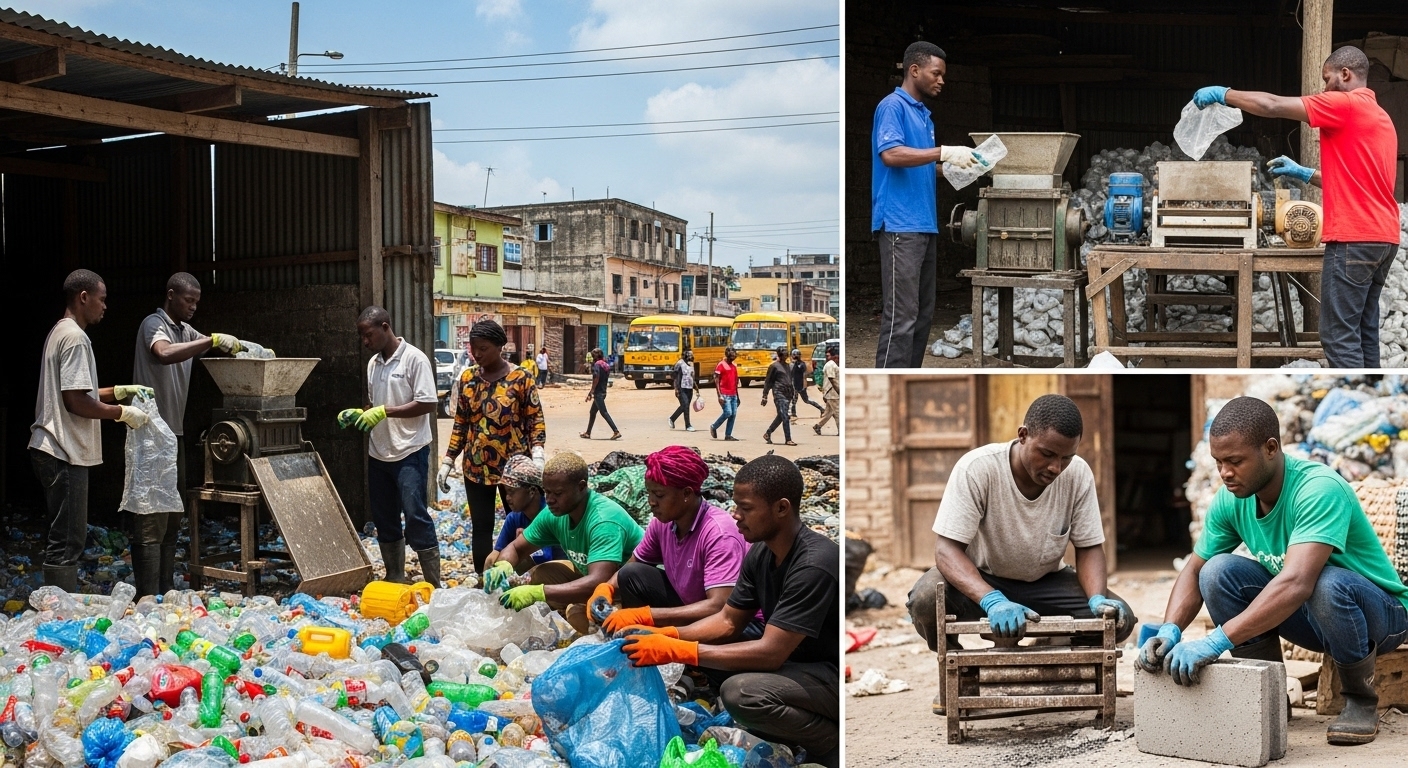As Nigeria confronts surging plastic pollution, a new blueprint for sustainable change emerges.
Circular economy models champion recycling-led growth, creating jobs and reshaping value chains, while targeted green tax reforms spark debate on long-term impact.
Stakeholders now face a pivotal choice: amplify inclusive circular solutions or rely on fiscal incentives to curb pollution.
Turning the Tide: Nigeria's Circular Economy Push Against Plastic Waste
According to the Nigerian Climate Innovation Centre (NCIC) report, Nigeria stands at an intersection in its battle against plastic waste. With tens of millions of tons generated over the past decade, the environmental and economic stakes continue to rise.
Regulatory green taxes and circular economy strategies offer contrasting avenues for intervention, each presenting unique opportunities and trade-offs.
Embedded in community action and backed by global partnerships, the circular economy approach is gaining traction for its potential to generate new wealth, create increased employment, empower waste pickers, and boost local innovation. Now, accelerating scale and measuring impact values in terms of revenues, costs and more are crucial for Nigeria's transition into a truly sustainable future.
Plastic Waste Crisis Demands a Shift
Nigeria faces an urgent environmental challenge: from 2007 to 2017, the nation produced over 46 million tons of plastic waste, with only 5.5 million tons recycled.
As green taxes gain policy traction, decisive multisector action is needed to prevent escalation and unlock circular economy value.
| Indicator | Value (2007–2017) | Stakeholder Urgency |
|---|---|---|
| Plastic Waste | 46 million tons | Act now: Policy, private sector, NGOs |
| Recycled Plastic | 5.5 million tons | Accelerate recycling infrastructure |
Circular Economy vs Green Taxation
The NCIC study reveals contrasting approaches. Circular economy models power restorative, regenerative change through plastic recycling, job creation, and community engagement.
Projects like CyclePlast created over 5,000 jobs, generated N973 million in transactions, and processed 7,400 tons in 2024 alone.
Green taxes, meanwhile, focus on fiscal penalties to incentivise behaviour change and disincentivise pollution.
| Approach | Example Projects | Metrics | Policy Levers |
|---|---|---|---|
| Circular Economy | CyclePlast, Coca-Cola/USAID | 5,000+ jobs, 7,400 tons, N973M | Community incentives, innovation grants |
| Green Taxation | Federal plastic tax | Market behaviour | Fiscal penalties, compliance mandates |
Inclusive Benefits: Jobs, Income, Social Impact
Circular economy initiatives are projected to deliver up to 14 million jobs by 2050, with immediate employment for youth and women waste pickers.
Income streams, health improvements, and community growth position recycling as a driver of both social and environmental resilience.
| Outcome | Data | Stakeholder Focus |
|---|---|---|
| Job Creation | 1,120 direct jobs (2024), 957 waste pickers | Youth, informal sector |
| Income | $1 million generated in 2024 | Local communities |
| Social Impact | PPE, training, health programs | Waste main handlers |
Drive Collaboration and Policy Reform
Comprehensive circular policy reforms, public–private partnerships, and behavioural change initiatives are essential.
Notable investments include $4 million from USAID/Coca-Cola supporting Lagos and Eastern states. School programs and advocacy campaigns provide critical capacity building and awareness.
| Strategy | Key Stakeholders | Program Example |
|---|---|---|
| Collaboration | Gov, Business, CSOs | Multi-sector partnerships |
| Capacity Building | Youth, waste pickers | Skill, tech, education |
| Advocacy | Media, influencers | 13-week radio campaign |
Measure Impact, Scale Circular Economy
Continued success depends on robust monitoring, annual reviews, and expanded aggregator support (working capital, balers).
Key Performance Indicators (KPIs) will encourage evidence-based funding and targeted interventions for long-term results.
| Area | Action Item | Results Expected |
|---|---|---|
| Monitoring/Eval | Annual reviews, KPIs | Scalable, sustainable |
| Policy/Funding | Capital for aggregators | Growth in job creation |
| Metrics | Registered waste pickers | Workforce expansion |
Data Table: AIDAP Framework
| Section | Title | Key Message | Data/Evidence | Stakeholder Recommendation |
|---|---|---|---|---|
| Attention | Plastic Waste Crisis Demands a Shift | Nigeria faces severe plastic waste threats; green tax gains traction | 46M tons generated; 5.5M recycled | Policy and businesses must act |
| Interest | Circular Economy vs Green Taxation | Circular economy offers restorative solutions; green taxes deter pollution | CyclePlast: 5,000+ jobs, 7,400 tons | Scale recycling, compare models |
| Desire | Inclusive Benefits: Jobs, Income, Social Impact | Circular model generates increased job opportunities, health for communities | Projected 14M jobs by 2050; 957 pickers | Empower youth, invest in innovation |
| Action | Drive Collaboration and Policy Reform | Circular policy, partnerships, and education are vital | $4M USAID/Coca-Cola, advocacy | Multi-sector collaboration |
| Priority | Measure Impact, Scale Circular Economy | Monitor, expand, prioritise circular growth | Annual reviews, KPIs, and aggregator support | Evidence-based, long-term scale |











